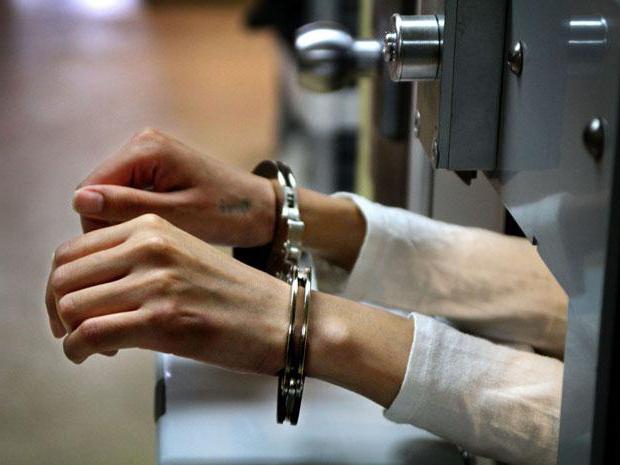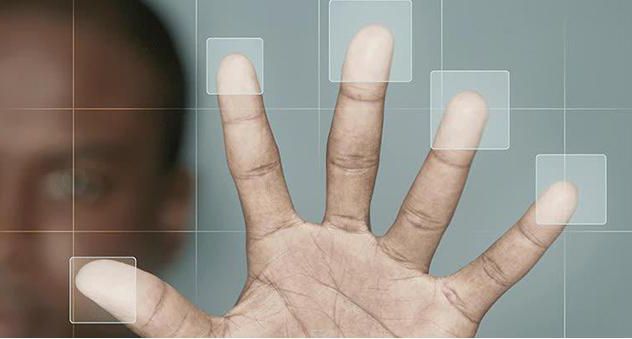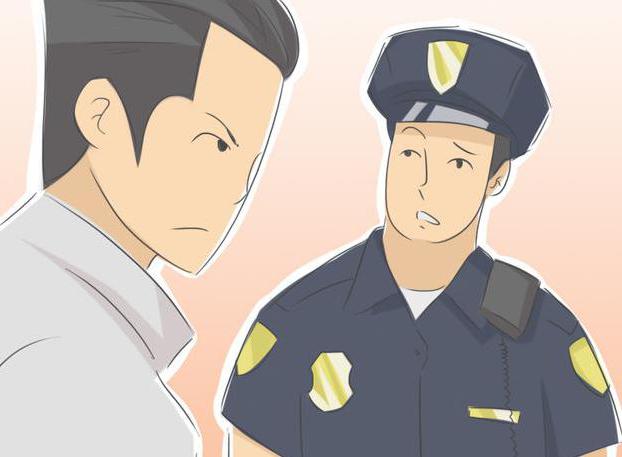The procedure for considering a report of a crime is regulated by the Code of Criminal Procedure. The rules for studying the information received are also detailed in other normative acts. Obligatory for all law enforcement agencies is the Order on the Registration of Crimes and the Model Regulation establishing a single procedure for registering cases. The bodies of the Ministry of Internal Affairs also adopt joint normative acts on certain categories of acts and incidents. However, the basic rules are established by Art. 144 Code of Criminal Procedure. 
General Provisions
As indicated in h. 1 tbsp. 144 Code of Criminal Procedure, the head of the department (body) of inquiry / investigation, other authorized employees are obliged to accept and study information about any impending or committed assault. Within the competence stipulated by the Code, they must make a decision based on the results of the actions taken. They have 3 days to do this. Verification of a crime report involves obtaining samples for comparative analysis, explanations, the collection of documents and objects, their seizure according to the rules enshrined in the Code.
Within the limits of their competence, authorized bodies and persons have the right to appoint an expert examination, participate in its implementation, and receive opinions within a reasonable time. During the inspection, employees carry out an inspection of the place of the event, documents, corpses, objects, examination. They may require the organization of audits, studies, and the involvement of specialists. In this case, investigators have the right to give the inquiry body written instructions on the implementation of operational-search measures.
Guarantees to production participants
They are provided Section 1.1, Art. 144 Code of Criminal Procedure RF According to the provisions, persons who participate in the implementation of procedural measures are explained their duties and rights established by the Code. They are ensured the possibility of their implementation in that part in which the actions taken affect their interests in the framework of the case. In particular, it is explained to them that they have the right not to testify against relatives, spouses and themselves, can take the help of a lawyer, make complaints about the inaction, decisions and actions of authorized employees according to the rules established by Chapter 16 of the Code.
Participants in the audit may be required to maintain the confidentiality of information that they became aware of as part of the procedural measures. The safety of persons involved in production, if necessary, is ensured according to the rules enshrined in article 166 (part 9).
Additionally
Information obtained in the process of checking reports of unlawful acts can be used as evidence. In this case, compliance with the provisions of 89 and 75 articles of the Code. If, after the initiation of proceedings, the defense party or the victim sends a request for an additional (repeated) examination, the request must be granted. 
Media Publications
The Code sets out a special procedure for considering a crime reportmade public by the media. The study of information published in the media is carried out by the inquiry body on behalf of the prosecutor, as well as the investigator by order of the head of his unit. The editor-in-chief (edition) at the request of authorized persons is obliged to provide the documentation and materials available to him confirming the publication of the infringement.In addition, the director of the organization must transmit information about the subject who reported the crime. The exception is cases when a person has made a condition to keep the source of information secret.
Extension of term
Head of the investigation unit, the body of inquiry, according to h. 3 tbsp. 144 Code of Criminal Procedure, has the right to increase the period allotted for the study of the information received about an unlawful act. The reason for the extension of the term is a motivated application of an employee carrying out operational-search measures. The period can be increased up to 10 days. If it becomes necessary to conduct forensic examinations, audits, study documentation, investigate corpses, perform other procedural actions, the head of the investigative unit at the request of the subordinate and the prosecutor, at the request of the inquirer, have the right to extend the term to 30 days. Moreover, the decision should indicate specific circumstances that served as a reason for increasing the length of the period allotted for verification. 
Rules for registration
Having studied statement in accordance with Article 144 Code of Criminal Procedure, an authorized employee shall issue a document to the subject who transmitted the information, indicating his data. It also records the time and date the information was received. The relevant rule sets out h. 4 tbsp. 144 Code of Criminal Procedure. The refusal to register information may be challenged in court or appealed to the prosecutor. The person concerned must be guided by the rules of Articles 124-125 of the Code.
Special rules
The victim (his representative) has the right to file an application as part of a private charge to the court. It is studied in the order of article 318. In situations established in the fourth part of Art. 147, the rules apply Art. 144 Code of Criminal Procedure. Upon receipt of information about unlawful actions provided for by the rules of the Criminal Code (198-199.1), from the inquiry body, the investigator, in the absence of grounds for refusing to open a case, sends a copy to the tax authority, in which the payer (agent) is registered with documents attached, among which should be a preliminary calculation of the estimated amount of arrears. Appropriate actions are taken within three days.
Mandatory events
After studying the materials sent by the investigator according to the rules of part 7 Art. 144 Code of Criminal Procedure tax authority no later than 15 days. from the date they are received:
- Sends an employee an opinion on a violation of the provisions of the Tax Code and on the correctness of preliminary calculations of the amount of arrears. These actions are performed if the circumstances recorded in the materials on the crime acted as the subject of research during a previous tax audit, which resulted in a decision being taken that came into force. The tax authority must also send information about the suspension of its execution or appeal.
- Notifies of a check being conducted with respect to the payer / agent, as a result of which the decision has not yet entered into force or has not been made.
- Informs about the lack of data on violation of the provisions of the Tax Code. This action is performed if the circumstances recorded in the report on the crime were not previously studied by inspectors during the audit.

Having received the opinion of the Federal Tax Service Inspectorate, an employee of the law enforcement body must make an appropriate decision. This action must be completed no later than 30 days. from the date of receipt of the report of the crime. Criminal proceedings under Articles 198-199.1 of the Criminal Code may be instituted until the relevant conclusion or information listed above is obtained from the IFTS if there is sufficient evidence to open a case.
Art. 144 Code of Criminal Procedure with comments
Each law enforcement structure has a departmental act establishing the rules for the adoption, registration and study of information on unlawful acts.In all these instructions and provisions, the obligation to issue to the subject reporting the crime a special document - a notice coupon is fixed. It indicates the specific assault on which information has been received. The fact of receiving such a coupon is verified by the applicant in the spine. He remains with the authorized employee who accepted the information. Coupon forms - strict reporting documents. Servants decorated the roots are handed over to the responsible person of the investigation department. They are stored for a year.
Failure Features
Art. 144 of the CPC provides a series of guarantees for persons who have provided information about unlawful actions (committed or being prepared). In particular, citizens have the right to appeal the refusal of an authorized employee to accept information. Such a situation may take place, for example, in the absence of a duty investigator or other employee performing similar tasks. Meanwhile, this circumstance is not considered a basis for refusing to register information about an infringement. According to the provisions of Art. 144 of the Code of Criminal Procedure of the Russian Federation, a citizen has the right to appeal such a decision to the head of the investigation department or his deputy. At the same time, these persons are obliged to accept an entity that does not agree with the refusal immediately. A complaint may also be submitted to the prosecutor, the head of the body of inquiry, as well as to the court. 
Information Registration
Received reports of crimes are recorded in special accounting documents. If there is a good reason for initiating proceedings, the information is reflected in the registration book. The information includes:
- The sequence number assigned to the message.
- Time and date of adoption.
- Information about the applicant and the authorized employee to whom the information was transmitted.
- Coupon number.
- A brief description of the event.
- Position, surname of the employee to whom the message for verification has been transmitted. This information is certified by the signature of the specified person.
- Information about the procedural decision and the time of its adoption, the results and the date of its verification by the head.

Time to study information
As indicated in Art. 144 of the CPC, the study of data on unlawful acts is carried out by the investigator, interrogating officer, head of the investigative unit or body of inquiry. The study of the received information is carried out, as a general rule, within 3 days. If there are obvious signs of a criminal act, the institution of proceedings should not be delayed until the end of the specified period. Accordingly, a decision must be made without delay.
However, it should be said about the inadmissibility of hasty adoption of it. As part 3 of article 144 indicates, a three-day period may be extended at the request of an investigator or inquiry officer to 10 days. The specified employees should provide a justification for the advisability of extending the period established by the norm. The reasons, as a rule, are the search and research of materials and documents, the need to perform additional investigative measures, etc.
Important point
Extending the time of verification, the head of the authorized body must order the establishment of specific facts related to the incident. If necessary, he gives instructions on involving specialists in the process. If there are grounds, the inspection period can be extended up to 30 days. As a rule, this is due to the need to carry out examinations, study documentation, corpses, objects, conduct operational-search measures. Extension of the term is carried out at the request of the employee who checks the report of the crime. This document should describe the objective reasons for the expediency of increasing the period. 
Conclusion
The information that will be obtained during the audit can be used as evidence in the case, subject to the provisions of Articles 75 and 89.In case of non-provision of participation on the side of the citizen in respect of whom the investigative actions are carried out, all explanations will be considered established in violation of the law. Accordingly, they cannot act as evidence. The information obtained during verification may be re-checked after the initiation of production.
With this in mind, the legislator provided additional guarantees for the participants in the case. In particular, it is established that if, after the commencement of the proceedings, the defense or the victim has submitted a request for a second or additional examination, then such a request shall be granted. This basis for the appointment of research is among the mandatory.
When checking reports of illegal actions posted in the media, authorized employees must be guided by special rules. In particular, if the person who submitted the relevant information to the editorial office has established the condition for maintaining the confidentiality of his personal data, this requirement must also be complied with by law enforcement agencies. In case of violation of the requirements, liability is provided.